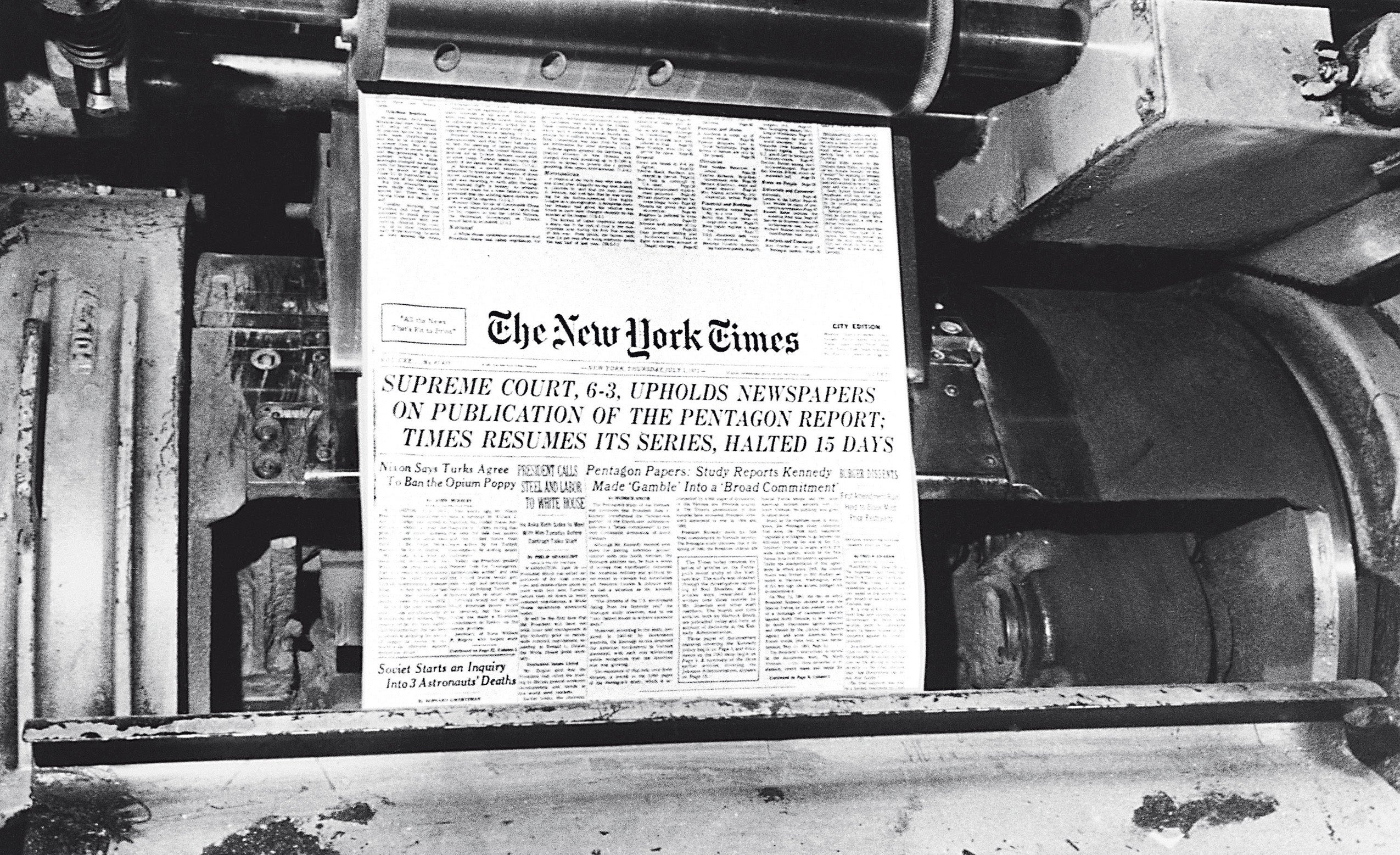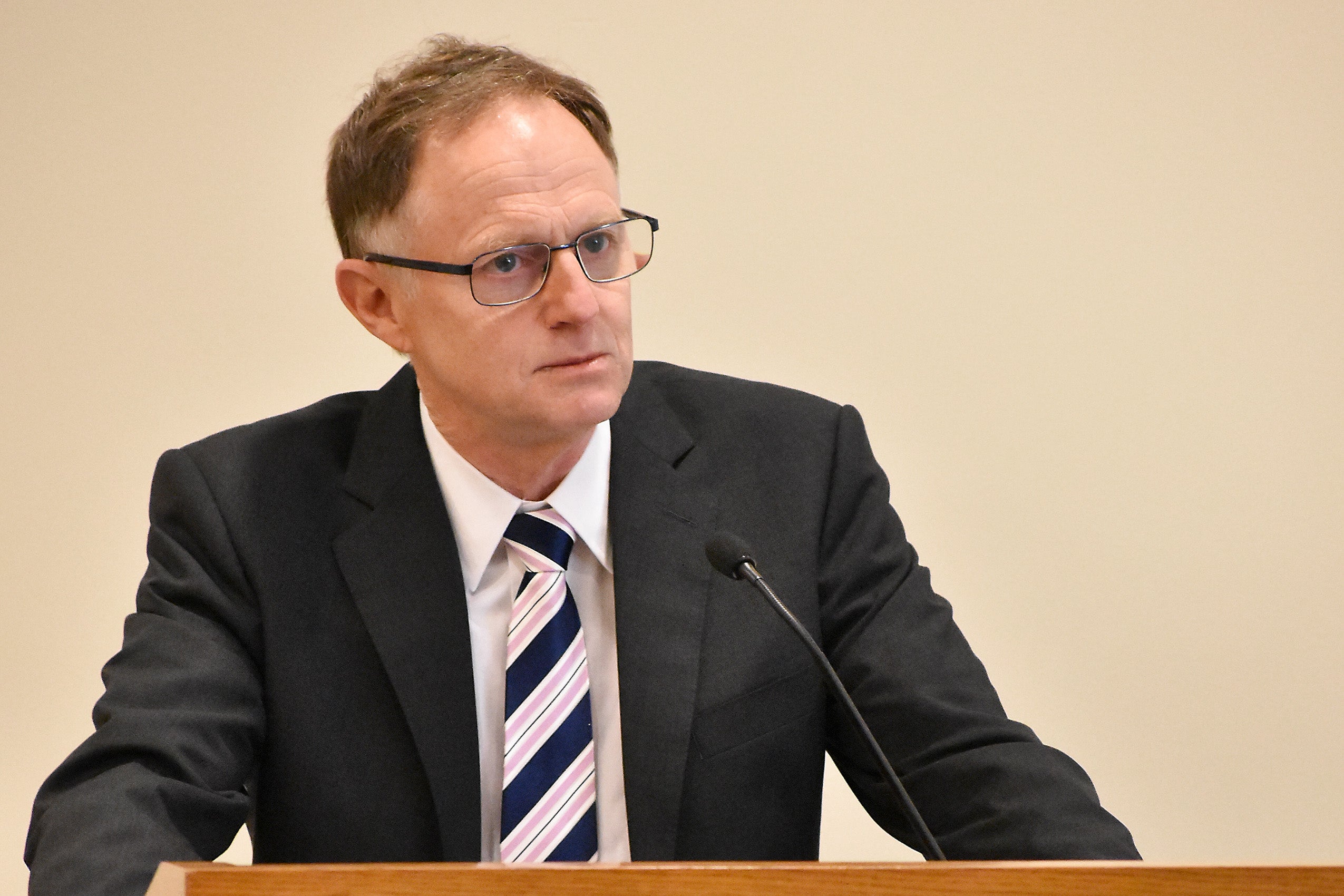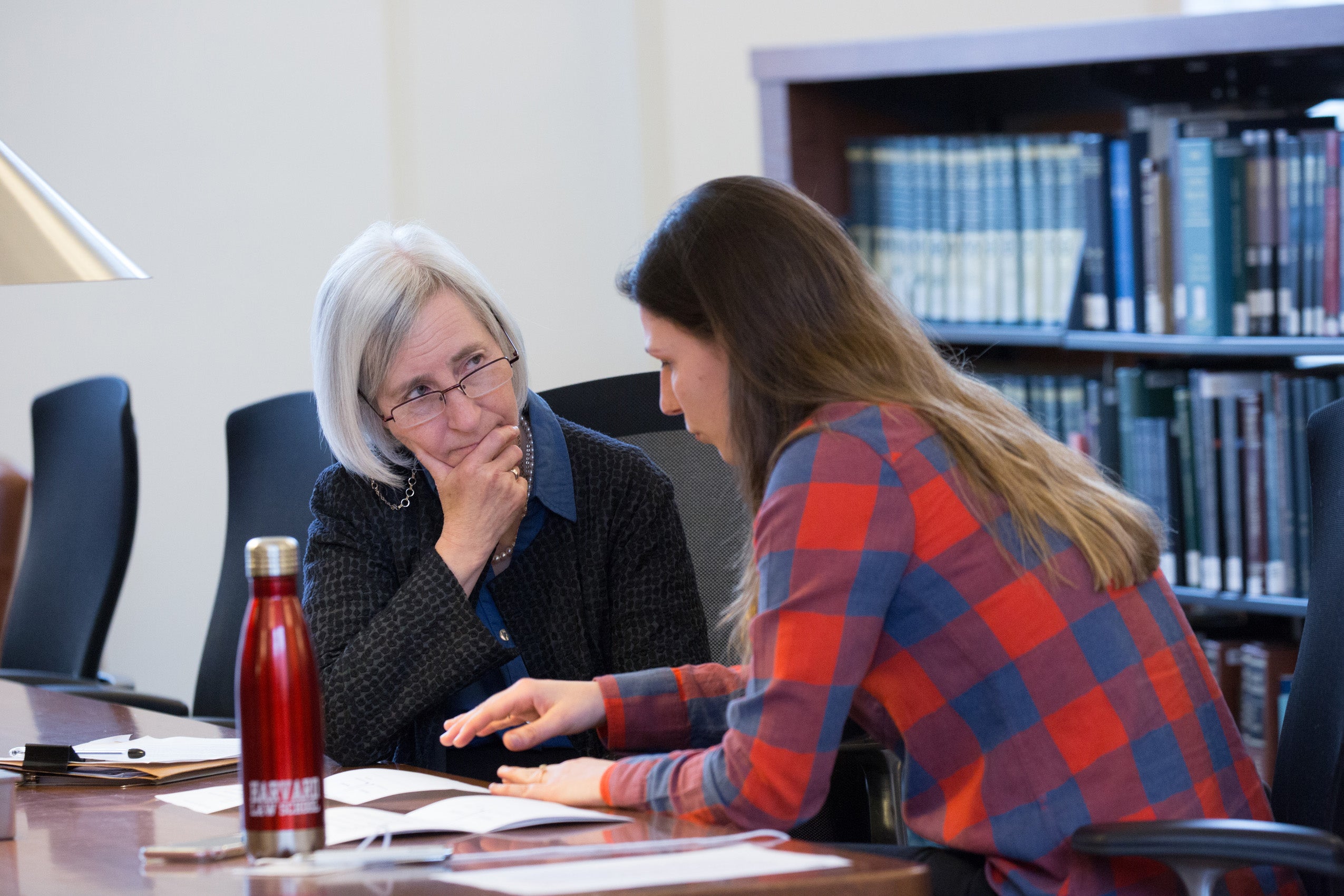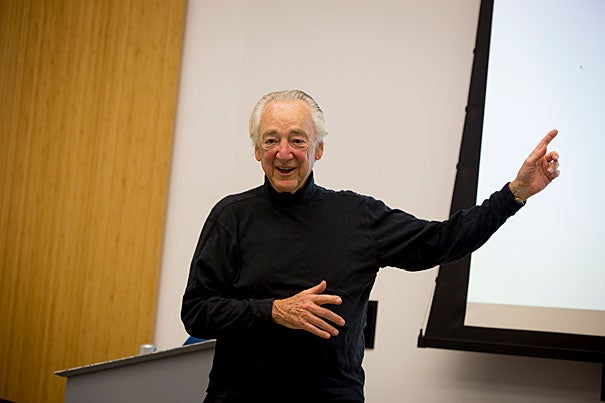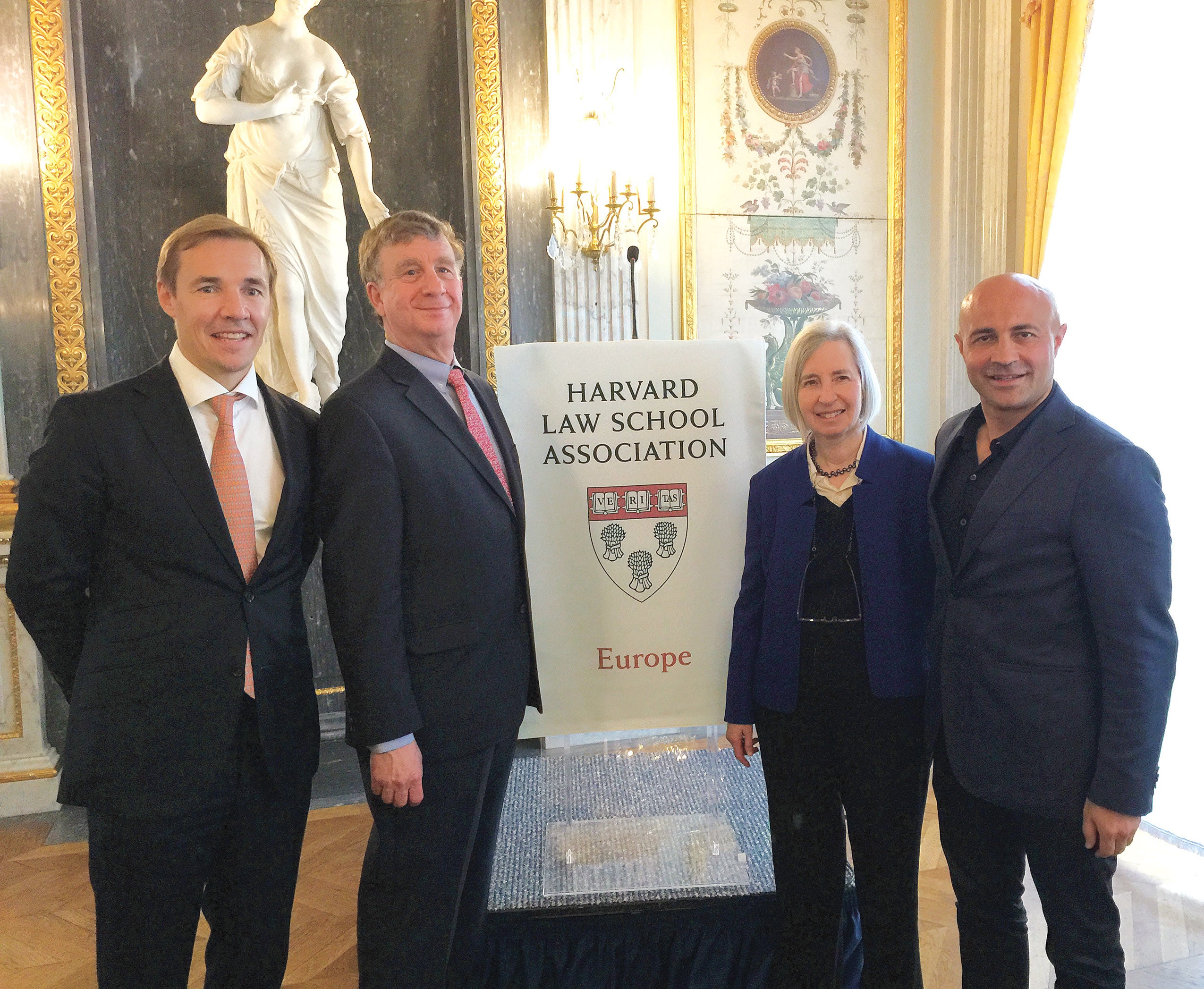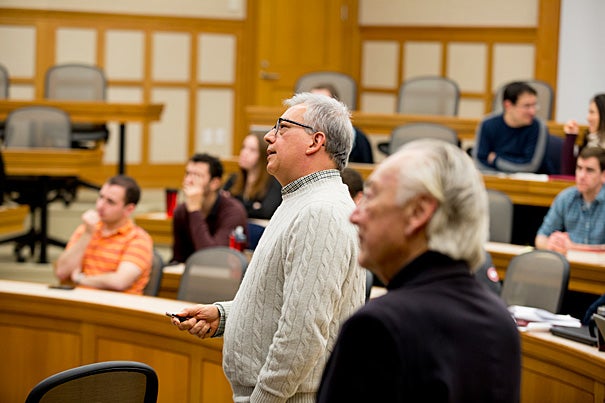People
Charles Nesson
-
Should the internet be treated like a public utility?
April 20, 2021
At the annual Klinsky Lecture, Visiting Professor John G. Palfrey ’01, president of the MacArthur Foundation, says we need a regulatory regime for technology.
-
Jamaica’s cannabis gamble
April 17, 2019
When Jamaican children catch a cold, mothers rub cannabis oil on their chests. Rastafarians smoke cannabis as a religious custom. Some believe that it grew on King Solomon’s tomb. Encouraged by the tropical climate, cannabis grows in many household gardens. ... But it dare not appear too friendly. Jamaican banks that do business with cannabis companies risk having their accounts at American banks shut down. If that happened on a large scale, Jamaica could be cut off from access to American dollars, which would devastate the economy. Jamaica received $2.3bn in remittances in 2017, more than its income from exports of goods. Jamaican officials also risk losing their access to American visas if the country is found to be flouting the United States’ drug laws, says Charles Nesson of Harvard Law School.
-
Australian High Court Justice reflects on how legal systems deal with alternative facts
April 23, 2018
Stephen Gageler AC, LL.M. ’87, a justice of the High Court of Australia, returned to Harvard Law School in March to meet with faculty members, participate in classes, and speak on 'Alternative Facts in the Courts.'
-
Jamaica wants in on the booming marijuana market. But will farmers be able to cash in?
November 29, 2017
...The international market for marijuana is booming. It’s set to reach $50 billion within a decade. And after spending millions to crack down on the drug, Jamaica’s government has decided it wants to cash in. It legalized medical marijuana and created a new licensing system to allow farmers to legally grow cannabis for medical, scientific or therapeutic purposes...According to the State Department, Jamaica is the largest Caribbean supplier of illegal pot to the United States. Charles Nesson, a Harvard Law professor with a lifelong interest in Jamaica says the federal government doesn’t want more weed coming in. But, Nesson says, keeping pot illegal in Jamaica means problems for small farmers like Baxter. “Criminalize something that is widely available to poor people, widely used by poor people — that leaves discretion in the police as to who they want to arrest,” he says.
-
Connecting beyond the classroom
April 21, 2017
More than 60 Harvard Law students and 27 HLS faculty members took over the typically quiet tables of the library reading room for the first “Notes and Comment” event.
-
Stop checking fivethirtyeight.com. Sign off of Twitter. Say goodbye and good riddance to those vitriolic political ads. The presidential election is over. But four years can pass quickly, and if colleges can’t lead productive discussions of sensitive topics in their classrooms, can we expect the discourse in future elections to be any better? At Harvard Law School, where admission is a veritable pass to a life of leadership, longtime professor Charles Nesson says the Internet has been “crippling” for classroom discussions. “Even when laptops are closed, you still feel the danger of being in a completely connected environment,” he observes. “People are cautious on issues that engage real diversity and real difference. I think it’s tremendously challenging to law teachers, to socratic teachers. A lot of faculty are feeling that we weren’t trained for this.” Nesson recently started experimenting with an approach he hopes will help.
-
Professor has Ed Portal audience vote on legalization of marijuana
November 4, 2016
It’s been eight years since Massachusetts voters decriminalized the possession of one ounce or less of marijuana. On Tuesday, they’ll decide whether to tax and regulate the sale and adult consumption of it. The initiative, known as Question 4, would legalize and create a commission to regulate marijuana in Massachusetts.
-
Professor has Ed Portal audience vote on legalization of marijuana
November 4, 2016
... The initiative, known as Question 4, would legalize and create a commission to regulate marijuana in Massachusetts. Under the new law, individuals at least 21 years old would be able to use marijuana, possess it, and grow up to six marijuana plants in their homes. For Charles Nesson, Weld Professor of Law at Harvard Law School and co-founder of the Berkman Center for Internet and Society at Harvard University, the issue was the subject of an in-depth discussion at the Harvard Ed Portal in Allston. Nesson’s discussion Tuesday evening on the upcoming vote was part of the faculty lecture series at the Ed Portal, and drew strongly from Nesson’s HarvardX course “JuryX: Deliberations for Social Change.”
-
Harvard students excited for the possibility of legalized marijuana in Massachusetts may find it sobering that, if Harvard follows the paths of other universities, the drug will likely remain banned on campus even if Massachusetts Ballot Question 4 passes...Legalizing marijuana on a campus that receives federal funds could potentially jeopardize those funds, according to Harvard Law School professor Charles R. Nesson. Nesson recently lectured at the Harvard Ed Portal in Allston on Question 4. “The operative question I think is whether this acts as an in terrorem effect,” Nesson said, referring to Harvard’s federal funding as a deterrent to permitting cannabis. “I just can’t imagine Harvard taking any step but the most conservative one: go the slowest, stay the closest to the ground.”
-
U.S. Supreme Court Decides 3 Cases Involving Race
May 24, 2016
The U.S. Supreme Court has ruled that a Georgia man sentenced to death is entitled to a new trial because prosecutors deliberately excluded all African Americans from the jury based on their race. The 7-to-1 ruling was one of three high court decisions issued Monday involving racial discrimination...Harvard Law Professor Charles Nesson, an expert on jury selection, says peremptory strikes invite discrimination. Striking a qualified juror by saying "Sorry, you're gone," is "an insult, and yet, it's perfectly tolerated," Nesson said.
-
Jamaica needs to get its act together… quick!
March 21, 2016
An op-ed by Charles Nesson. Jamaica has a remarkable opportunity to lead the world in cannabis reform, but to do so it will have to get its act together pretty damn quick. The Colorado model of wide, open recreational use of all forms of cannabis in any concentration is a loser. Governor Charlie Baker in my state of Massachusetts, after investigation in Colorado, has just come out against it because of the bad effect such unrestricted recreational use could have on kids. Jamaica has the opportunity to reframe the world’s understanding of cannabis by putting focus on spiritual use of the natural herb. Jamaica’s great success so far has been its recognition of Rastafari, and the legal celebrations of the Negril Cannabis Cup and Rebel Salute.
-
Rastafari Rootzfest Celebrates Jamaica’s Emancipation of Marijuana
November 20, 2015
The Rastafari Rootzfest, launched on October 27, 2015 at the Bob Marley Museum in Kingston, Jamaica, brought together reggae music and ganja in a groundbreaking event on the Caribbean island that has led the way in decriminalising marijuana. It was described as “the first international wellness festival which celebrates Jamaica's indigenous peoples and their cultural heritage.” ... Charles Nesson, the William F. Weld professor of law at Harvard Law School and founder of the Berkman Center for Internet and Society at Harvard University, called it nothing short of amazing that the small farmers of Westmoreland can “finally reach out to connect with and feel support from small farmers everywhere.”
-
A European (Re)Union
October 5, 2015
This past May, Harvard Law School Dean Martha Minow joined HLSA President Salvo Arena LL.M. ’00 and more than 200 other alumni at a celebration to commemorate the 50th anniversary of the founding of the Harvard Law School Association of Europe, held at the Cercle de l’Union Interalliée in Paris.
-
Lessig 2016
September 24, 2015
Long ago, Larry Lessig relished the private world of an academic. That was another life, though, before a cartoon version of his face—grey hair, tiny round glasses—cropped up all over the internet, before he discussed his books and joked around on TV shows like "The Daily Show with Jon Stewart." That was before he decided to run for President of the United States...“It was almost like he was another professor in the classroom,” remembers Alex Whiting, now a professor of the practice at Harvard Law School who attended Yale with Lessig. “You had the professor in the front of the classroom, the professor in the back,” he adds, cracking a grin...“He is, in many ways, an elegant man,” says Charles R. Nesson, a Law School professor who helped recruit Lessig for the Berkman Center for Internet and Society during his first stint at Harvard. “Elegant in the forcefulness of his ideas and mode of his presentation.”
-
Olympics out, UN sports conference in?
August 23, 2015
An op-ed by Charles Nesson. Boston's Olympic bid spurred a remarkable community deliberation. It gave us a chance to talk about our visions for sports and the city. The discussions were exciting, and we felt a spirit of democracy. But the subsequent withdrawal of the bid left many with an empty feeling. It truncated deliberation about the future of Boston’s engagement with sport by removing its focal point. Suddenly, we had no place to go. We moved on to the issue of chewing tobacco at Fenway. Without an Olympic focal point, our energy dissipated. But we now have an opportunity to regain that energy. The United Nations, through UNESCO, is seeking a host city for its next all-nations sports conference, the International Conference of Ministers and Senior Officials Responsible for Physical Education and Sport, or MINEPS VI, to be held in May 2017. Boston should bid for it.
-
Open Letter to Obama Calls for Better Justice System
December 8, 2014
Nearly half of the Harvard Law School student body signed an open letter to President Barack Obama and Attorney General Eric Holder in the wake of recent grand jury decisions to not indict police officers for the deaths of two unarmed black men. The letter, released by the Harvard Black Law Students Association, calls for the use of body-worn cameras by police and the prosecution of police officers who “deprive black men and women of their constitutional right to life.” The latest instance of student activism in response to the decisions, the HBLSA letter collected over a thousand signatories in 24 hours, including over 800 law school students, 39 student organizations, and 30 members of the faculty and staff. Of the faculty and staff, 9 professors, including Charles R. Nesson ’60 and Charles J. Ogletree, Jr., signed their names.
-
At a December 2 event sponsored by Harvard Law School's Brazilian Studies Association and its Committee on Sports and Entertainment Law, experts convened at to discuss digital media's place in the future of the global sports business model.
-
In sports, live TV is still No. 1
December 5, 2014
It’s likely no surprise that digital media outlets are quickly capturing the worldwide sports audience. Websites and social outlets such as YouTube, Facebook, and Twitter regularly share the latest great catch or slam-dunk via video, tweet, or “like.” Yet television still has an enormous grip on millions of fans around the globe, in particular during live sporting events with international appeal, such as the Olympics or the World Cup...The discussion on the future of the sports business model was sponsored by HLS’s Brazilian Studies Association and its Committee on Sports and Entertainment Law. The panel, moderated by Charles Nesson, the William F. Weld Professor of Law and co-founder of Harvard’s Berkman Center for Internet & Society, included Harvard Business School’s Richard P. Chapman Professor of Business Administration, emeritus Stephen Greyser, and sports law specialist and HLS lecturer on law Peter Carfagna.

